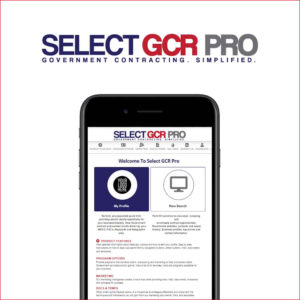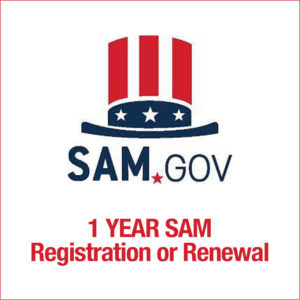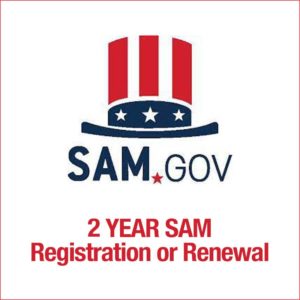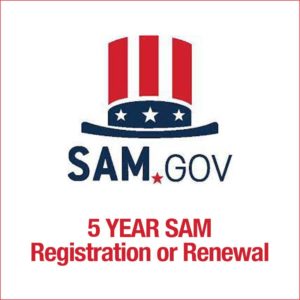Want to bid on government jobs? This guide explains each step, from finding opportunities and registering in SAM, to crafting a strong bid and increasing your chances of winning contracts. Discover how to navigate the process and secure government contracts for your business.
Key Takeaways
-
Bidding on government contracts presents significant growth opportunities for businesses, especially small enterprises, with substantial revenue and credibility benefits.
-
Preparation is essential for success in government contracting, involving steps such as registration in the System for Award Management (SAM), identifying your NAICS code, and assessing business readiness.
-
Leveraging subcontracting opportunities and tailored marketing strategies can enhance small businesses’ competitiveness and visibility within the federal contracting landscape.
Why Bid on Government Jobs?

Bidding on government contracts represents one of the most significant avenues for business growth, especially for small businesses. These contracts can lead to substantial revenue and stable funding opportunities, making them an attractive prospect for businesses of all sizes. Moreover, understanding the procurement processes of government agencies can significantly enhance your marketing efforts, allowing you to tailor your strategies to meet the unique needs of these major buyers.
For small businesses, winning federal government contracts often results in significant expansion and growth opportunities. These contracts not only provide a steady revenue stream but also bolster the credibility and trustworthiness of the business. Not bidding on government jobs means missing out on a major avenue for new customers and revenue.
Government agencies as major buyers
The U.S. government is the largest purchaser in the world, significantly influencing the purchasing landscape. Federal agencies, through their extensive procurement needs, offer a myriad of contracting opportunities for businesses. Government agency programs like the GSA Schedules provide long-term contracts, allowing businesses to sell commercial products and services at pre-negotiated prices, simplifying the purchasing process.
Federal contracts are categorized using the NAICS code, which classifies businesses based on the products and services they offer. This classification helps in identifying and targeting the right contracting opportunities within the vast federal marketplace.
Set-asides for small businesses
The federal government spends over $700 billion annually on federal contracts, with a commitment to award 23% of these contracting dollars to small businesses. This set-aside policy translates to approximately $145.7 billion awarded to small businesses in 2021 alone, providing substantial opportunities for growth and stability. Furthermore, the government aims to award 50% of its contracts to small disadvantaged businesses in the coming years, further enhancing the prospects for small business contractors.
Set-asides for small businesses ensure that they have a fair chance of winning contracts, encouraging their participation in the government contracting process. This policy not only supports small businesses but also helps them gain a foothold in the competitive federal market.
Preparing to Bid on Government Jobs
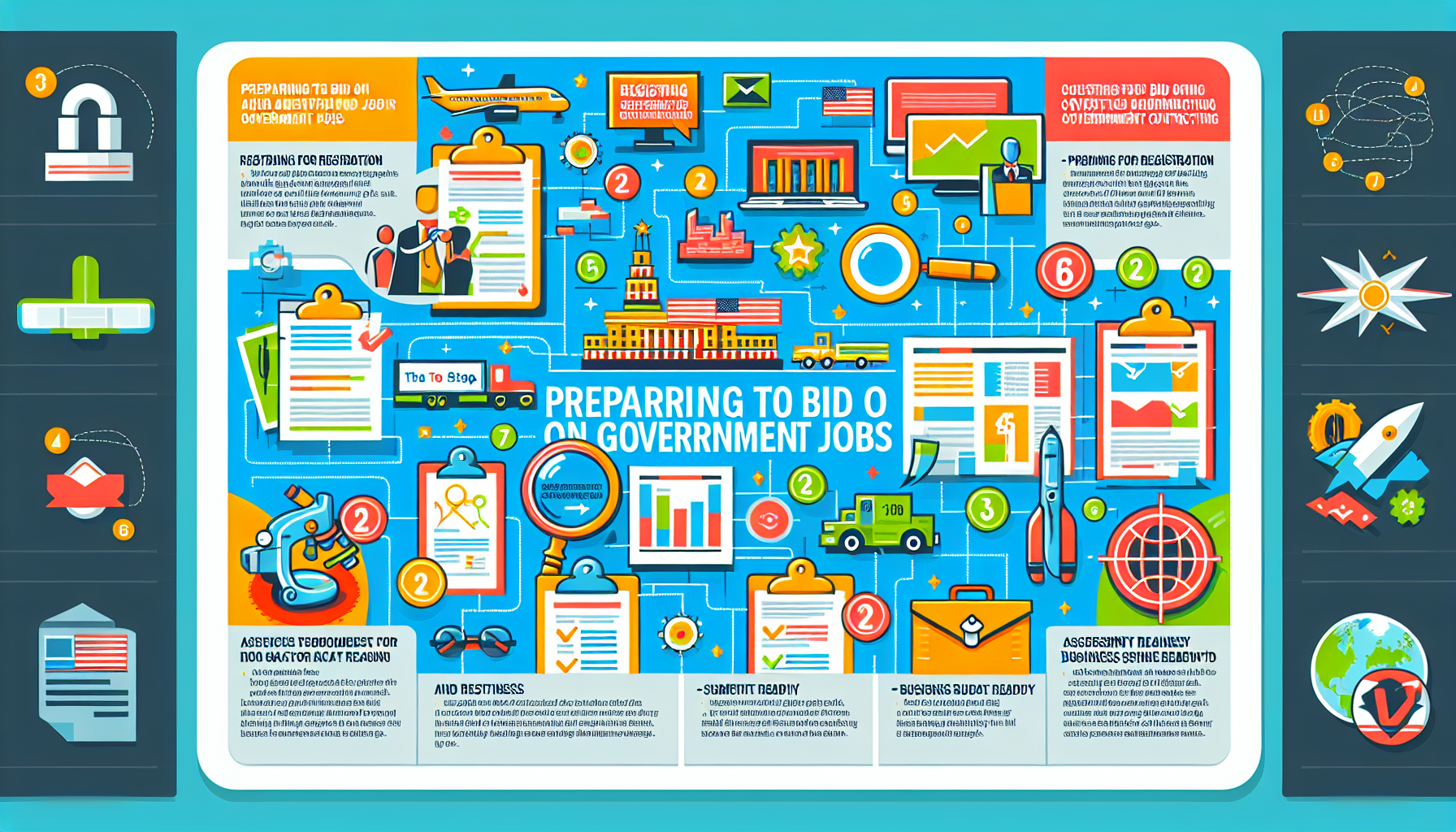
Preparation is key when it comes to bidding on government jobs. From registering in the System for Award Management (SAM) to assessing your business readiness, each step is crucial for ensuring compliance and increasing your chances of winning contracts. Tailoring your approach to meet the requirements of the federal procurement process can significantly enhance your success rate.
Registration with SAM is a mandatory step for any business seeking to engage in federal contracting. Identifying your NAICS code is vital for classifying your business and targeting the right opportunities.
Assessing your business readiness, including financial stability and past performance, is crucial for demonstrating your capability to government agencies.
Registering in SAM
Registration in SAM is a prerequisite for participating in government contracting. This process involves obtaining a Unique Entity ID (UEI), a 12-digit code necessary for bidding on government contracts. Businesses can benefit from the support of registration specialists to ensure a smooth registration process.
Once registered, your business profile in SAM helps in enhancing visibility to contracting officials and government buyers, increasing your chances of being found in search results.
Identifying your NAICS code
The NAICS code is vital for identifying the category of products or services your business offers in government contracting. This classification can be found on the NAICS Association website or through the U.S. Census Bureau code lookup tool. Most businesses have a primary NAICS code, but they can also list secondary codes to describe additional services.
Assessing business readiness
Government agencies prioritize businesses with a solid track record and reliable reputation when selecting contractors. Demonstrating your track record through subcontracting opportunities can enhance your credibility. Financial stability is also crucial, with sufficient cash flow expected during the bidding process to reflect your business’s financial health. Establishing relationships with a prime contractor can further demonstrate your business’s credibility and readiness for larger contracts.
For first-time bidders, preparation costs can range from $80,000 to $130,000. Additionally, having a solid accounting system that adheres to generally accepted accounting principles is essential for maintaining compliance and ensuring successful contract management.
Finding Government Contract Opportunities

Finding the right government contract opportunities is a crucial step in the bidding process. Various databases, including SAM.gov and USASpending.gov, provide detailed information on federal contracts, helping businesses identify procurement trends and potential opportunities. Local government websites can also serve as valuable resources for community-specific projects.
Government agencies must advertise contracts over $25,000 on SAM.gov, making it a primary source for finding federal business opportunities. Effectively utilizing these resources can help you identify the best opportunities for your business.
SAM.gov
SAM.gov is the platform where federal business opportunities are listed for contractors. Since May 2023, it has replaced FedBizOpps.gov, becoming the central point for finding contracts over $25,000. The user-friendly interface allows businesses to search and filter opportunities based on various criteria, making it easier to find contracts that match their services and capabilities.
Businesses should search for contracts that fit their services and capabilities, then submit a bid.
Dynamic Small Business Search (DSBS)
The Dynamic Small Business Search (DSBS) is a database maintained by the Small Business Administration (SBA) to help government agencies locate small business contractors. Small businesses can specify their capabilities in the DSBS, enhancing visibility to federal procurement officers.
The SBA’s searchable database, SubNet, helps find subcontracting opportunities, allowing prime contractors to post subcontracting opportunities and enabling small businesses to access potential contracts.
GSA Schedules
The GSA Schedules program allows businesses to sell products and services directly to government agencies through a streamlined process. Also known as the Multiple Award Schedule, this program opens the door to over $39 billion in federal contracting opportunities. Becoming a contract holder on the Multiple Award Schedule provides exclusive access to contract opportunities available only to Schedule holders.
Forming partnerships in government contracting can increase contract opportunities and improve competitiveness, making the GSA Schedules an attractive option for businesses looking to expand their federal market presence.
Crafting a Winning Proposal

Crafting a winning proposal is essential for securing government contracts. A compelling proposal must clearly communicate how your company meets the government’s specific requirements. Reading the terms and conditions in the solicitation documents carefully is crucial, as they detail the requirements and obligations that must be fulfilled.
Proposals should showcase a compelling solution while aligning with government requirements to enhance selection chances. Meeting all the criteria outlined in the solicitation documents ensures compliance and increases the chances of winning the contract.
Understanding the solicitation
Thoroughly understanding the solicitation documents is crucial for compliance with government requirements. Understanding the pricing structure outlined in the RFP can help in formulating a bid that aligns with government expectations. A comprehensive review of the solicitation documents ensures that your proposal meets all the required criteria, increasing your chance of winning bids.
Developing a strong technical approach
Your technical approach should identify the problem at hand and outline how your company intends to provide a solution. Detail your methodology to explain how you plan to maintain transparency and address issues promptly.
A successful technical approach outlines methodologies and demonstrates how the proposed solutions meet customer needs. Proposals should demonstrate a deep understanding of the technical aspects necessary for contract fulfillment.
Competitive pricing strategies
Competitive pricing is key to securing federal contracts. Balancing competitive pricing with maintaining profitability is critical when bidding on government contracts. Understanding the total costs involved in fulfilling the contract’s requirements helps avoid underbidding or overbidding.
While businesses may not make a lot of money from their first federal contract, competitive pricing can enhance their chances of winning future contracts.
Navigating the Bidding Process
Navigating the bidding process involves a systematic approach, from registration to proposal submission. Understanding the federal procurement process and the specific formatting requirements for proposals is essential for success in government contracting.
The potential cost for businesses preparing to bid for their first contract can range from $80,000 to $130,000. Government agencies might ask for three main types of solicitations in their bidding process, each with specific requirements.
Submitting your bid
Creating a detailed business profile in SAM enhances visibility in the Dynamic Small Business Search database. Proper submission of your bid through the appropriate channels ensures compliance with government contracting requirements.
Including all required documentation is critical for bid acceptance and prevents disqualification. Proper bid submission can lead to increased visibility and contract opportunities within the federal marketplace.
Handling bid protests
A bid protest occurs when a losing bidder or another interested party claims that there were improper actions or decisions during the bidding process. Filing a bid protest can arise from allegations of unfair evaluation practices or other improper actions.
A successful bid protest can lead to the reevaluation of bids or even a re-awarding of the contract if irregularities are found. The SBA’s Office of Hearings and Appeals handles appeals on size determinations made by the SBA, ensuring proper review of claims.
Leveraging Subcontracting Opportunities
Subcontracting offers a valuable entry point for small businesses into the federal contracting arena. By partnering with larger prime contractors, small businesses can gain experience and credibility without directly engaging with government agencies.
Federal contracts can act as a springboard for small businesses to scale operations and hire more staff, making contracting officer subcontracting a strategic method for growth.
Finding subcontracting partners
Subcontracting helps small businesses gain experience and credibility in the government contracting arena. Networking with government buyers can lead to potential subcontracting opportunities. Using the Dynamic Small Business Search can help small businesses find small business contractors get noticed by prime contractors.
A strong capability statement helps in presenting your business to potential prime contractors.
Benefits of subcontracting
Subcontracting can enhance a small business’s visibility within the government contracting space, increasing their chances of securing future contracts. It serves as a strategic approach for small businesses looking to enter the government contracting arena effectively, providing an opportunity to build a track record and gain valuable experience.
By participating as subcontractors, small businesses can gradually build their reputation and demonstrate their capabilities, positioning themselves for future prime contracts. This incremental approach allows businesses to grow sustainably while meeting the stringent requirements of government agencies.
Marketing Your Business to Government Agencies

Marketing your business to government agencies requires a targeted approach. Securing federal contracts provides small businesses access to a broad market with diverse procurement needs. Researching the specific needs of government agencies can help tailor marketing strategies effectively.
By understanding these needs and demonstrating how your business can meet them, small businesses can market directly to government agencies or prime contractors. Tailoring messages to specific target audiences is crucial for effective marketing to government agencies.
Creating a strong capability statement
A compelling capability statement should clearly emphasize a business’s past performance and strengths to attract government contracts. Including a concise summary of the company’s core capabilities, major services, and relevant certifications helps effectively communicate the business’s value to potential government clients.
Clear and concise language in a capability statement showcases your past performance and the unique strengths of your business, making it easier for government agencies to understand why your business is the right fit for their needs.
Networking with government buyers
Participating in industry conferences and networking events is a key strategy for building relationships with government buyers. Building these relationships can be significantly enhanced through consistent engagement and participation in industry events and conferences. Establishing relationships with government buyers fosters trust and increases the likelihood of receiving contract opportunities.
Networking events and industry conferences provide an excellent platform for small businesses to connect with key decision-makers and showcase their capabilities.
Managing Contracts After Winning
Winning a government contract is just the beginning; effectively managing the contract is crucial for long-term success. Government contracts offer small businesses consistent and predictable income, boosting their credibility and trustworthiness.
Effective contract management involves balancing compliance, risk management, and performance monitoring to ensure successful service delivery. Adhering to strict compliance standards established by various regulatory bodies is essential for maintaining a strong relationship with government agencies.
Compliance and reporting
Maintaining accurate and well-documented records is crucial for compliance in government contracts. Regular internal audits can help contractors maintain compliance and profitability by identifying discrepancies in accounting practices.
Accurate timekeeping records are essential for allocating labor costs, which often constitute a large portion of contract expenses. Adhering to compliance regulations is critical for maintaining transparency and accountability in government contract management.
Performance evaluation
Government agencies assess contractor performance based on past performance records and adherence to contract requirements. A contractor’s past performance can significantly impact eligibility for future contract opportunities.
Using a vendor scorecard can help track contractor performance and address issues proactively, strengthening the agency-vendor relationship. Regular performance evaluations ensure that contractors meet the high standards expected by government agencies.
Summary
Navigating the world of government contracting can seem daunting, but with the right preparation and strategies, it becomes an attainable and rewarding goal. From registering in SAM and identifying your NAICS code to crafting winning proposals and managing contracts effectively, each step is crucial for success.
By leveraging subcontracting opportunities, marketing your business effectively, and maintaining compliance, you can position your business for sustained growth and success in the federal marketplace. Embrace the journey, and let the potential of government contracts unlock new avenues for your business.
Frequently Asked Questions
Why should small businesses bid on government jobs?
Small businesses should bid on government jobs because it offers significant growth opportunities, stable revenue, and enhances their credibility in the market. This strategic move can ultimately lead to long-term success and sustainability.
What is the importance of registering in SAM for government contracting?
Registering in SAM is crucial for engaging in federal contracting, as it is a requirement that increases your visibility to government buyers and facilitates access to contracting opportunities.
How can small businesses find government contract opportunities?
Small businesses should explore government platforms such as SAM.gov, the Dynamic Small Business Search (DSBS), and GSA Schedules to identify contract opportunities. Utilizing these resources can significantly enhance their chances of securing government contracts.
What should be included in a capability statement?
A capability statement should encompass a summary of core capabilities, major services offered, relevant certifications, and evidence of past performance. This information is essential to effectively communicate your organization’s strengths and qualifications.
How can subcontracting benefit small businesses?
Subcontracting can significantly enhance small businesses by providing valuable experience and boosting their credibility, which in turn improves their visibility and likelihood of winning future contracts. This strategic approach is beneficial for long-term growth and success.


